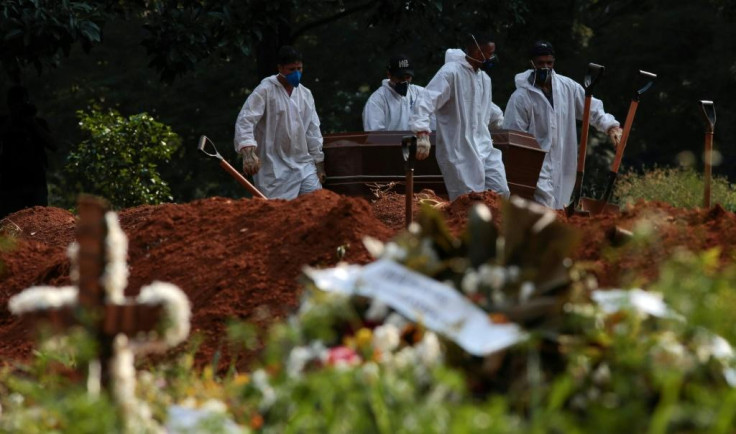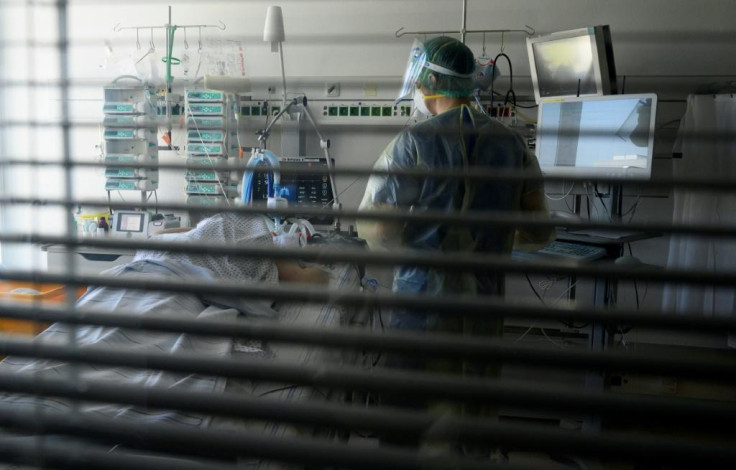Vaccine deliveries for poor nations delayed, Biden doubles goal
EU Commission head Ursula von der Leyen released updated figures on how many vaccines the bloc has exported -- 77 million vaccine doses to 33 countries since December.
A co-founder of the global scheme to provide vaccines for poor people said Thursday that India was delaying exports of much-needed jabs, while President Joe Biden doubled his goal for doses administered in the US by the end of April to 200 million.
The widening gap for vaccine access complicates the world's eventual exit from the pandemic through a global immunisation drive, as third waves sweep several countries and force governments to reimpose tough anti-virus restrictions.

At the centre of much of the vaccine controversy is AstraZeneca, which on Thursday said its jab was three percentage points less effective than previously thought, after being called out for publishing outdated data.
AstraZeneca is also one of the main vaccines used in the Covax project, which supplies poorer countries with jabs, and is facing export delays in India where it is produced by the Serum Institute.

The Gavi alliance, a Covax co-founder, said deliveries of vaccines to lower-income economies will face delays because of a "setback" in obtaining export licences from the Indian government.
A Gavi spokesman said the licence delays "are due to the increased demand of Covid-19 vaccines in India".
The vast country recorded more than 50,000 new coronavirus cases on Thursday for the first time since November and is struggling to keep up with its own faltering vaccine drive at home.
However vaccinations in the United States -- the world's top economy and hardest-hit country in the pandemic -- have been storming ahead, with Biden raising his goal for shots in arms during his first 100 days in office from 100 to 200 million.
"I know it's ambitious, twice our original goal," he told his first press conference since taking office on January 20.
"But no other country in the world has even come close -- not even close -- to what we are doing, and I believe we can do it."

The AstraZeneca shot was hailed as a breakthrough because it is cheaper and easier to store and transport than other vaccines.
But the British-Swedish firm was forced to review its US trials and then slightly revise down the jab's efficacy at preventing symptomatic Covid from 79 percent to 76 percent, after an American agency raised concerns about outdated information.

It remains 100 percent effective against severe Covid, it added.
AstraZeneca is also at the centre of the EU's vaccine woes, with an infuriated Brussels tightening export controls after the company failed to deliver the doses it had promised to the bloc.
European Union leaders met via videoconference Thursday to discuss AstraZeneca supplies, as well as new vaccine export rules that will weigh how needy countries are in terms of infection rates, how many jabs they have, and how readily they export doses to the bloc.
EU Commission head Ursula von der Leyen released updated figures on how many vaccines the bloc has exported -- 77 million vaccine doses to 33 countries since December.
By contrast, 88 million doses will have been delivered in the 27-nation bloc by the end of this week, also since December.
But estimates for the second quarter of this year showed that 360 million doses should be delivered from BioNTech/Pfizer, Moderna, AstraZeneca and Johnson & Johnson.
"Together we will ensure that Europeans get their fair share of vaccines," von der Leyen tweeted.
The talks come as Germany, Poland, France, Belgium, Austria and the Netherlands tighten restrictions to control surges in cases.
Central and Eastern Europe have been particularly hard-hit, with Ukraine posting a record number of Covid fatalities for the third straight day and Hungary registering the world's highest death rate per 100,000 inhabitants over the last week.
The pandemic has claimed more than 2.7 million lives worldwide, hammered the global economy and left much of humanity under punishing restrictions.
But in some parts of the world, vaccinations have brought joy back after a tough year.
"We were just waiting to be all together again because we were really sad to be divided like that, floor by floor," said Lydie, a 91-year-old retirement home resident in France's Val-de-Marne, where vaccinations have allowed an easing of curbs.
"There was no joy. Now it's very good. We are happy."
And several countries have raced ahead with their vaccine drives -- including Israel which said Thursday more than half of its 9.2 million people have received both doses of the Pfizer/BioNTech shot.
However Israel has been criticised for not doing more to vaccinate Palestinians, and the US said it would provide $15 million towards inoculations in the occupied territories.
The torch relay for the Tokyo Olympics meanwhile got off to a low-key start on Thursday -- overseas fans have already been banned from attending the Games.
"There would have been more excitement if there wasn't coronavirus."
Copyright AFP. All rights reserved.
This article is copyrighted by International Business Times, the business news leader





















